Share

The Ancients
Virgil
One of Antiquity's greatest poets, Virgil's legacy is seen across history. Following in the footsteps of his predecessor's Homer and Hesiod - Virgil's work inspires people even today. With inspiration for his poems coming from the political turmoil and change around him, Virgil's work offers insight into the tumultuous time he was living in.
But who was Virgil, and why are his work's still so revered?
In this episode, Tristan is joined by Dr Anne Rogerson from the University of Sydney to help shed some light on this mysterious figure. Looking at Virgil's three most famous works, The Georgics, The Eclogues, and of course The Aeneid - why has Virgil's legacy and name persevered throughout history?
For more Ancients content, subscribe to our Ancients newsletter here. If you'd like to learn even more, we have hundreds of history documentaries, ad free podcasts and audiobooks at History Hit - subscribe today!
More episodes
View all episodes
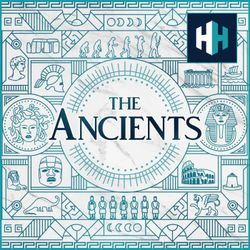
634. The Skulls of Jericho
53:53||Ep. 634In the depths of ancient Jericho, beneath layers of earth dating back 10,000 years, archaeologists uncovered something extraordinary: human skulls cast in plaster, their faces carefully reconstructed and their eyes set with shells. Who were these haunting figures meant to represent?In this episode of The Ancients, Tristan Hughes is joined by archaeologist Raven Todd DaSilva to explore the mysterious plastered skulls of Jericho. Dating to the Neolithic period, these striking objects reveal complex beliefs about memory, identity and the dead in some of the world’s earliest farming communities. How were they made? What did they mean? And why did this unusual practice spread across the Levant? Join us to dive into one of prehistory’s most compelling archaeological discoveries.MOREJericho:Listen on AppleListen on Spotify Origins of the Inuit:Listen on AppleListen on Spotify Watch this episode on our YouTube channel: @TheAncientsPodcastPresented by Tristan Hughes. Audio editor is Aidan Lonergan. The producer is Joseph Knight. The senior producer is Anne-Marie Luff.All music courtesy of Epidemic SoundsThe Ancients is a History Hit podcast.Sign up to History Hit for hundreds of hours of original documentaries, with a new release every week. Sign up at https://www.historyhit.com/subscribe. You can take part in our listener survey here:https://insights.historyhit.com/history-hit-podcast-always-on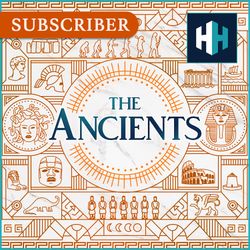
633. After Ancients: Sir Barry Cunliffe
31:45||Ep. 633In this special subscriber episode, we have an exclusive interview with the renowned archaeologist, Sir Barry Cunliffe.Barry shares insights from his extraordinary 50-year career, detailing his early days, notable excavations, including at Fishborne Roman Palace, where a last-minute dig unearthed a significant mosaic, and the challenging excavation of the sacred, but deadly, spring in Bath.Presented by Tristan Hughes. Audio editor is Aidan Lonergan. The producer is Joseph Knight. The senior producer is Anne-Marie Luff.All music courtesy of Epidemic SoundsThe Ancients is a History Hit podcast.Sign up to History Hit for hundreds of hours of original documentaries, with a new release every week. Sign up at https://www.historyhit.com/subscribe. You can take part in our listener survey here:https://insights.historyhit.com/history-hit-podcast-always-on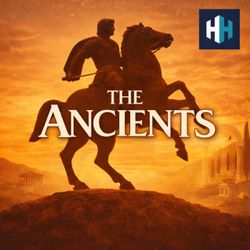
632. The Invasion of Persia | Alexander the Great
01:04:55||Ep. 632In spring 334 BC, a young Macedonian king sets out to conquer the Persian Empire.Tristan Hughes and Dr Adrian Goldsworthy explore Alexander the Great’s early campaigns, from the daring crossing into Asia to incredible victories. They discuss Alexander's strategic genius, respect toward Persian royalty, and how these triumphs forged his path to legend.MOREThe PersiansListen on AppleKing MidasListen on AppleListen on SpotifyPresented by Tristan Hughes. Audio editor is Aidan Lonergan, the producer is Joseph Knight. The senior producer is Anne-Marie Luff.All music courtesy of Epidemic SoundsThe Ancients is a History Hit podcast.Sign up to History Hit for hundreds of hours of original documentaries, with a new release every week. Sign up at https://www.historyhit.com/subscribe. You can take part in our listener survey here: https://insights.historyhit.com/history-hit-podcast-always-on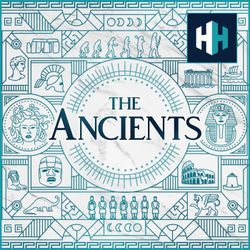
631. How to Write Cuneiform with Dr. Irving Finkel
01:00:21||Ep. 631More than 5,000 years ago, a revolutionary script emerged in the fertile lands of Mesopotamia that would transform how people counted, governed, worshipped and told stories. This was cuneiform, the world’s earliest known writing system.In this episode of The Ancients, Tristan Hughes is joined by Dr Irving Finkel to uncover how cuneiform actually worked and how you would write it yourself. From humble beginnings as simple pictograms tracking beer and grain, to the wedge-shaped signs that recorded myths, laws and epic tales long before the Bible, this episode explores how cuneiform spread across Sumer, Babylon, Assyria and Persia — and why these clay tablets remain one of archaeology’s richest windows into the ancient world.MORENoah's Ark and the FloodListen on AppleListen on Spotify The World's Oldest LettersListen on AppleListen on Spotify Watch this episode on our NEW YouTube channel: @TheAncientsPodcastPresented by Tristan Hughes. Audio editor is Aidan Lonergan. The producer is Joseph Knight. The senior producer is Anne-Marie Luff.All music courtesy of Epidemic SoundsThe Ancients is a History Hit podcast.Sign up to History Hit for hundreds of hours of original documentaries, with a new release every week. Sign up at https://www.historyhit.com/subscribe. You can take part in our listener survey here:https://insights.historyhit.com/history-hit-podcast-always-on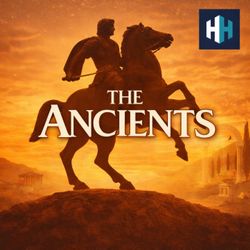
630. Alexander the Great | Rise to Power
01:24:13||Ep. 630NEW SERIES! Journey through the early life of Alexander the Great, from his education under Aristotle to his first military experiences and rise to Macedonian kingship.In this first episode, charting Alexander's incredible early life, Tristan Hughes and Dr Adrian Goldsworthy explore Alexander's formative years, the Battles that built the world's most formidable military leader and the immediate challenges following his father's assassination.MOREThe Rise of Hannibal with Adrian GoldsworthyListen on AppleListen on SpotifyDarius the Great, Persian King of KingsListen on AppleListen on SpotifyPresented by Tristan Hughes. Audio editor is Aidan Lonergan and the producer is Joseph Knight. The senior producer is Anne-Marie Luff.All music courtesy of Epidemic SoundsThe Ancients is a History Hit podcast.Sign up to History Hit for hundreds of hours of original documentaries, with a new release every week. Sign up at https://www.historyhit.com/subscribe. You can take part in our listener survey here: https://insights.historyhit.com/history-hit-podcast-always-on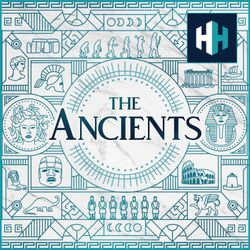
629. Adam and Eve
59:05||Ep. 629Adam and Eve: parents of humanity, or characters in a Near Eastern myth about wisdom, mortality, and the limits of being human?Tristan Hughes and Dr Dylan Johnson strip away the Sunday school varnish to re-examine the story of Adam and Eve, starting with the question: was there really an apple? They discuss the origins and multiple layers of the story, try and pinpoint where Eden might have been located, and trace the tale of lost immortality that echoes through the legends of Gilgamesh, Sumerian rivers, and the earliest biblical textsMOREMoses & The ExodusListen on Apple Listen on SpotifyThe Ark of The CovenantListen on Apple Listen on SpotifyWatch this episode on our NEW YouTube channel: @TheAncientsPodcastPresented by Tristan Hughes. Audio editor is Aidan Lonergan. The producer is Joseph Knight. The senior producer is Anne-Marie Luff.All music courtesy of Epidemic SoundsThe Ancients is a History Hit podcast.Sign up to History Hit for hundreds of hours of original documentaries, with a new release every week. Sign up at https://www.historyhit.com/subscribe. You can take part in our listener survey here:https://insights.historyhit.com/history-hit-podcast-always-on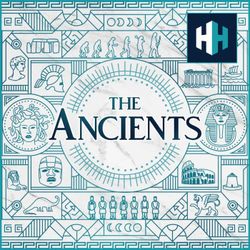
628. The First Popes
56:09||Ep. 628What do we know about the earliest Popes, and how did they shape the early Christian Church amidst persecution?Tristan Hughes is joined by Professor Rosamond McKitterick to journey back to Imperial Rome to uncover the fascinating tales of the earliest Popes, focusing on St. Peter and his possible connection to Mark's gospel, Sylvester I during Constantine's reign, and Pope Leo I who confronted Atilla the Hun.MOREJesus of NazarethListen on AppleListen on SpotifyThe Apocryphal GospelsListen on AppleListen on SpotifyPresented by Tristan Hughes. Audio editor is Aidan Lonergan and the producer is Joseph Knight. The senior producer is Anne-Marie Luff.All music courtesy of Epidemic SoundsThe Ancients is a History Hit podcast.Sign up to History Hit for hundreds of hours of original documentaries, with a new release every week. Sign up at https://www.historyhit.com/subscribe. You can take part in our listener survey here: https://insights.historyhit.com/history-hit-podcast-always-onAudio for Uploader: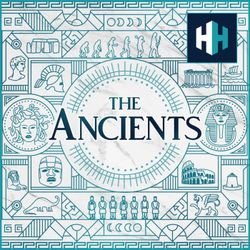
627. Xerxes the Great
55:39||Ep. 627He is one of the most famous rulers of the ancient world, remembered for leading a vast Persian invasion of Greece. Yet Xerxes the Great was far more than just a battlefield king.In this episode of The Ancients, Tristan Hughes is joined by friend of the show Professor Lloyd Llewellyn-Jones to explore the life and reign of the Persias most revered king who ruled the largest empire the world had yet seen. From his royal upbringing and court politics to religion, monumental building projects and imperial power, this episode goes beyond Greek battle narratives to uncover who Xerxes really was — and how the Achaemenid empire functioned at the height of his power.MOREDarius the Great: Persian King of KingsListen on AppleListen on SpotifyThe Persian Wars: Xerxes, Thermopylae and SalamisListen on AppleListen on SpotifyWatch this episode on our NEW YouTube channel: @TheAncientsPodcastPresented by Tristan Hughes. Audio editor is Aidan Lonergan. The producer is Joseph Knight. The senior producer is Anne-Marie Luff.All music courtesy of Epidemic SoundsThe Ancients is a History Hit podcast.Sign up to History Hit for hundreds of hours of original documentaries, with a new release every week. Sign up at https://www.historyhit.com/subscribe. You can take part in our listener survey here:https://insights.historyhit.com/history-hit-podcast-always-on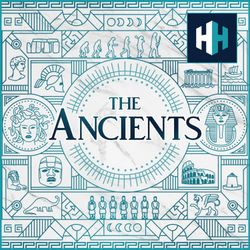
626. The Origins of Rome's Empire
58:34||Ep. 626396 BC. The city of Veii lies in ruins, destroyed by Rome in a brutal act of early imperial expansion. Yet just six years later, Rome itself would face devastation at the hands of invading Gauls, a shock that would shape the city’s identity for generations.In this episode of The Ancients, Tristan Hughes is joined by Professor Jeremy Armstrong to explore the origins of Rome’s empire. From the conquest of rival cities and the trauma of invasion to the development of Roman warfare, politics, and identity, this episode reveals how these early crises set the stage for Rome’s rise to dominance along the Tiber and beyond.MORE:The Kings of RomeListen on AppleListen on SpotifyThe Origins of Rome:Listen on AppleListen on Spotify Presented by Tristan Hughes. Audio editor and producer is Joseph Knight. The senior producer is Anne-Marie Luff.All music courtesy of Epidemic SoundsThe Ancients is a History Hit podcast.Sign up to History Hit for hundreds of hours of original documentaries, with a new release every week. Sign up at https://www.historyhit.com/subscribe.